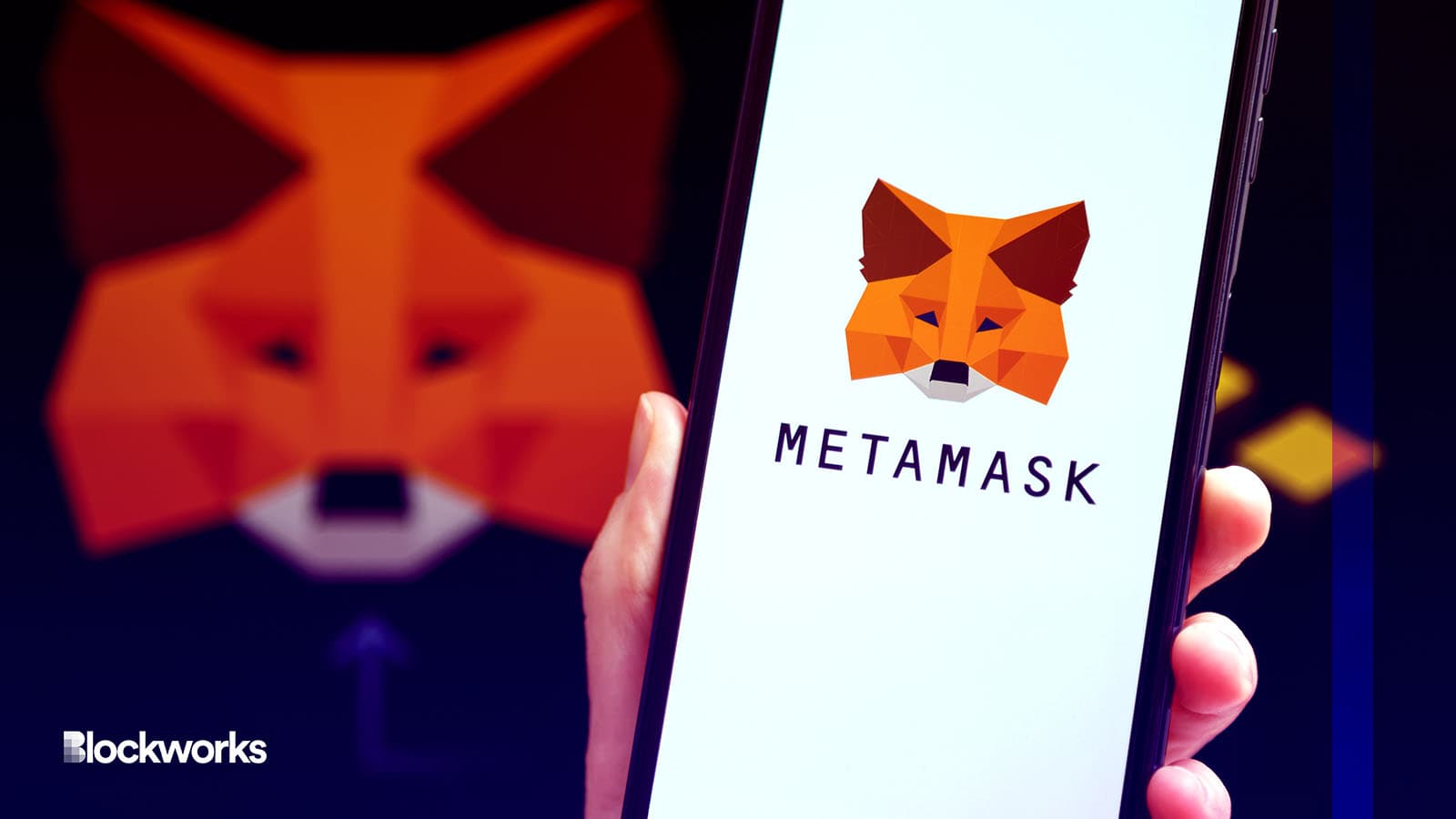ConsenSys Dispels MetaMask Terms of Use Update Confusion
Updated terms did not relate to taxes and ConsenSys said that taxes apply solely to specific products and paid plans

Iryna Budanova/Shutterstock, modified by Blockworks
ConsenSys, the Ethereum studio behind self-custodial wallet MetaMask, clarified to users that it neither collects taxes on crypto transactions nor implemented any related changes to its terms.
The clarification followed concerns raised by the crypto community regarding MetaMask and one section of its terms of service, with some suggesting a new update could enable the company to retain taxes.
Section 4.3 of MetaMask’s terms of service states, “We retain the right to withhold taxes as necessary.” While the tax-related aspect was neither an update nor new information, it has certainly caused some confusion now.
The confusion arose from several Twitter posts that brought attention to the section concerning taxes, which subsequently gained significant traction on Reddit.
While Metamask did update the Terms of Use for its popular browser extension last week, the changes were related to language in various sections concerning “Third-Party Offerings” and a jurisdictional move from Texas to New York, and not to section 4.3.
In a tweet thread on May 22, ConsenSys clarified that taxes are only applicable to specific products and paid plans. For example, Infura, which is MetaMask’s Application Programming Interface (API) tool, includes sales tax in its credit card developer subscriptions.
“Legal terminology can be complex, but it’s crucial to emphasize that this section DOES NOT apply to MetaMask or any other products that don’t involve sales tax,” the team added.
One widely circulated tweet falsely suggested that MetaMask would hold a user’s cryptocurrency if they failed to pay taxes.
The Twitter user further drew comparisons to Ledger’s recent firmware update for hardware wallets, raising concerns about an ID-based key recovery service that mandates users to provide identification for backup. There are worries regarding the security of custodian companies and potential risks for users who choose not to participate.
ConsenSys faced criticism last year for gathering users’ IP addresses and Ethereum wallet addresses. In addition to these, ConsenSys also said it collects usernames, passwords, gender information, and financial data including asset holdings, bank account numbers, and bank routing numbers.
The team clarified that the updates to its terms of use — which users agree to when they use the product — aimed to educate users about how MetaMask operates.
Get the news in your inbox. Explore Blockworks newsletters:
- The Breakdown: Decoding crypto and the markets. Daily.
- 0xResearch: Alpha in your inbox. Think like an analyst.






